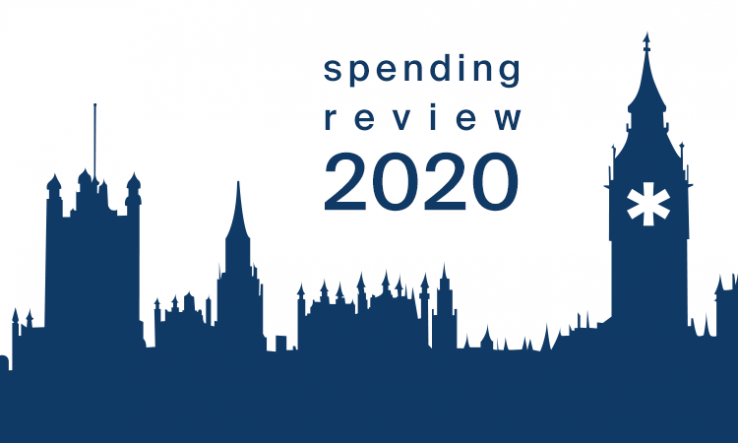
Charities ‘fervently hope’ R&D commitment at spending review includes funding to support them through Covid-19
Urgent clarity is needed from government on how it will support charity-funded research, medical research charities have said, following what they see as an omission in the government’s spending review.
While welcoming the near-£15 billion announced for R&D, Aisling Burnand, CEO of the Association of Medical Research Charities, said: “We must have clarity now on how this spending review will support charities in delivering the life-changing medical research patients urgently need”.
Her plea follows repeated calls from medical research charities for a Life Sciences Charity Partnership Fund, a co-investment scheme that would provide a level of matched funding over the next three years to make up for the expected shortfall in fundraising income due to Covid-19.
Charities are demanding an initial commitment of £310 million in 2021-22 for this financial year to bridge the sector’s projected research spend gap.
But their calls appear to have been unanswered in yesterday’s spending review, which set out the government’s spending plans for 2021-22.
The spending review only notes a previously announced “£750 million of support to charities supporting those directly affected by Covid-19”.
Questioned by Labour MP Clive Betts on the lack of funding for the research charities, Sunak noted “record spending on R&D next year” but he did not address the shortfall for medical research charities specifically.
‘Devastating impact’ of Covid-19
“Covid-19 has had a devastating impact on charity-funded research and the patients it benefits, it puts at risk future jobs and opportunities for a generation of researchers,” said Burnand.
“We fervently hope the government’s commitment to R&D includes providing financial support to the charity research sector.”
In the absence of such support, she warned that charities “are being forced to make irrevocable decisions which will have a major impact on the research they fund”.
“We need to know if and, if so, at what level funding is being made available to the sector so charities can commit to research with confidence.”
AMRC members have also expressed their disappointment.
‘Urgent clarity’
“Whilst some funding has been specifically marked for supporting the whole research and development ecosystem, there was no clear commitment to a Life Sciences Charity Partnership Fund nor to any targeted support for medical research charities,” said Matt Sample, a policy adviser at Cancer Research UK.
“We now need urgent clarity to understand whether the uplifts to research funding announced will support our vital medical research charities to recover from the impact of Covid-19.”
Charmaine Griffiths, chief executive of the British Heart Foundation, added that the pandemic meant scientific breakthroughs were now under threat.
“The BHF funds more than half of the UK’s independent research into heart and circulatory diseases, but we have had to halve our research budget this year,” she said.
“Investing in charity-funded research would ensure patients have access to the most innovative treatments and cures for decades to come. This would preserve the future of life saving discoveries, fuel our economic recovery and cement the UK’s position as a global science superpower.”
The spending review also failed to mention funding for dementia research, despite the Conservative Party 2019 election manifesto promises to boost such funding.
In a statement, the Alzheimer’s Society called on the government to honour its 2019 manifesto commitment to double the dementia research budget to over £160m a year, “to ensure the pandemic does not delay our progress in beating this condition any further”.
Research Professional News has contacted the Department for Health and Social Care for comment.
A version of this article also appeared in Research Fortnight